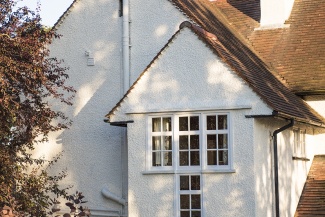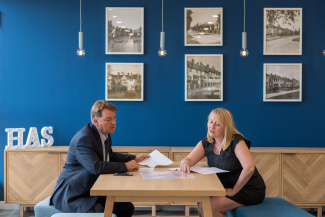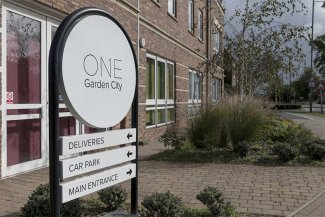Our Heritage Advice Service have launched their Energy Efficiency Guide. Find out what you can do to help with climate change and how to save yourself some money.
‘Two heads are better than one’
It is always a good idea to seek advice and a second opinion before acting on changes to your home. For drastic developments permission is always required.
Save yourself time and expense by speaking to our team before carrying out work on your home. You can email us at home@letchworth.com or phone us on 01462 530335. For some small-scale changes to your home, permission isn't required.
Here are some of our favourite eight small-scale changes you could undergo to make your home energy efficient.
1. Try switching bulbs over to LEDs
Switching over to LED bulbs not only keeps your home energy efficient, but LED bulbs last longer which will save you money in the long run. They also have no heat or UV emissions, Low Voltage Operation, and Improved Environmental Performance, all of which is good news for our environment.
2. Add more insulation to areas in your home
‘The light will guide you home, the warmth will keep you there’
Insulating the internal areas in your home ensures heat will remain, which may help you lower your energy bills. This could also result in a reduction in environmental impact, and could mean having a warmer home.
3. Use draught excluders for windows and doors
Draught excluders can block out unwanted draughts and lock in heat during windy and rainy days. They are a cost effective and quick way of maintaining an energy efficient home without the hassle of refurbishing to avoid heat loss.
4. Draught proofing
Chimneys draw air up and out of your home, so heat can be lost through a fireplace. Blocking it with a draught excluder, chimney sheep, or chimney balloon can be a good way to keep you warm and stop you wasting money on extra heating.
5. Turn off appliances and battery chargers when they aren’t in use
Did you know? Plug sockets that have devices plugged in that are not being used will still be consuming energy. The best ways to avoid this is by turning off the socket completely when not in use.
The term overcharging isn’t taken as seriously as it should
Leaving your devices on charge when they have reach 100% can cause damage to the battery as the current will still be pumped in to your device which can overload nickel and lithium rechargeable batteries.
6. Turn off radiators in rooms you don’t use often
Turning off your radiators in unused rooms is cost-effective as heat is not being wasted. It’s a good idea to get your radiators regularly bled as radiators that aren’t bled can cause a build up of air which will stop warm water circulating around your radiator, meaning it will fail to warm up.
7. Try turning down the main thermostat a little
Turning down the thermostat of your heating can save money. Where you can, set it at a low temperature and leave it on for longer rather than turning it off and on. This also avoids the radiator using excessive energy to reheat itself.
8. Close curtains and shutters at night
Closing your curtains and shutters helps lock in the heat, by limiting the flow of air between the warm and cold areas of a room. Even the thickest types of windows may allow heat to escape. Closing your curtains and shutters will save you from turning your heating up.




